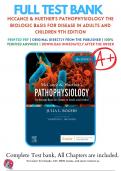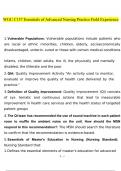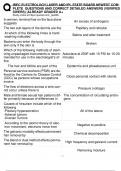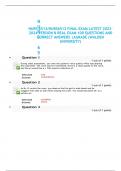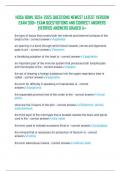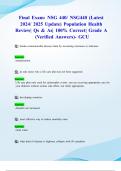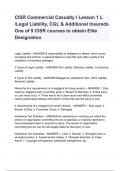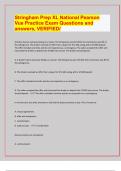Exam (elaborations)
Seidel's Guide To Physical Examination An Interprofessional Approach 10th Edition By Jane W. Ball, Joyce E. Dains (Chapter 1-26)
Seidel's Guide To Physical Examination An Interprofessional Approach 10th Edition By Jane W. Ball, Joyce E. Dains (Chapter 1-26)
[Show more]




